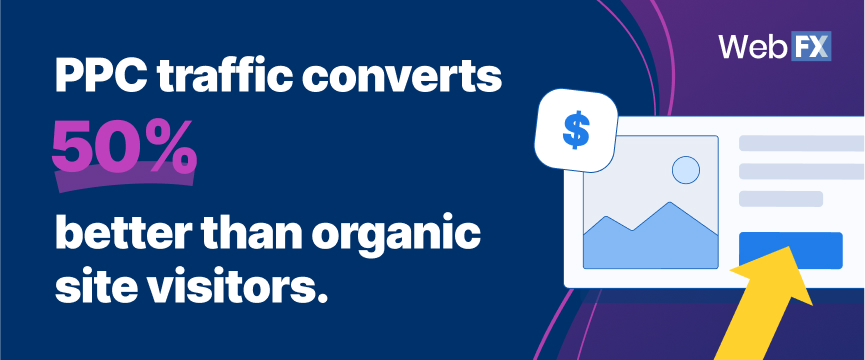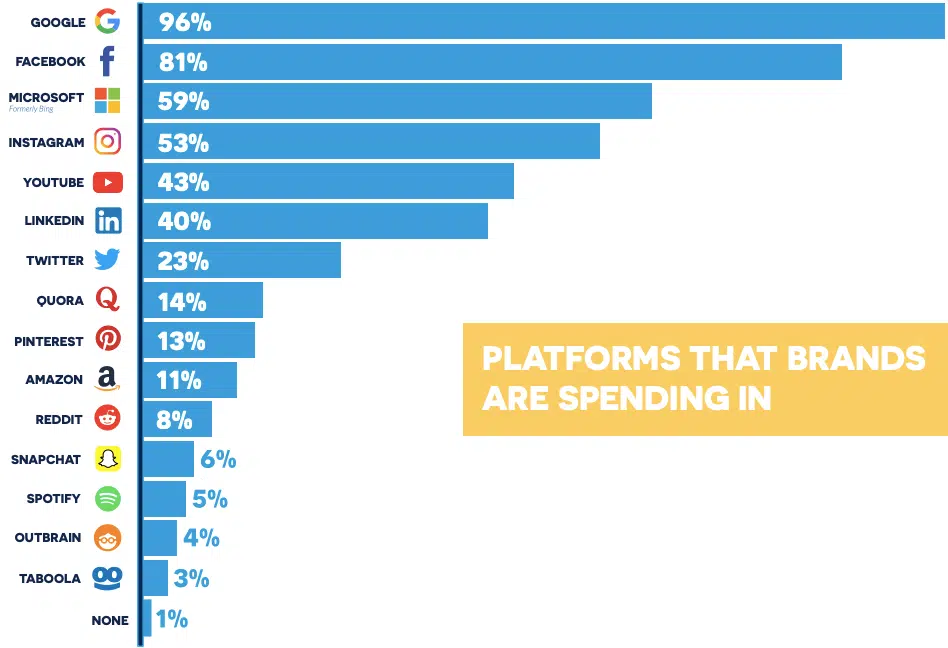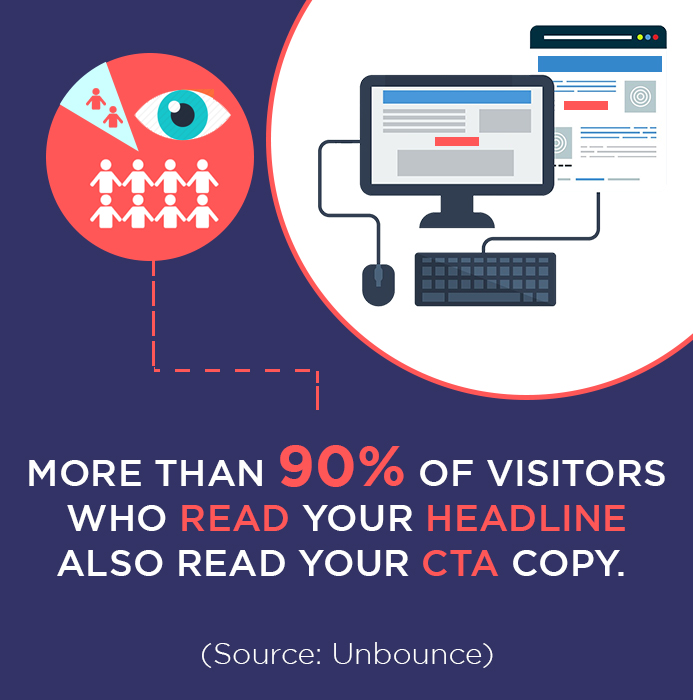One of small business owners' biggest misconceptions about pay-per-click advertising (PPC) is its cost. Yes, there are other channels that don’t require you to pay for ads but an effective paid ad campaign doesn’t have to be expensive at all.
Knowing the best PPC efficiencies can help your small business elevate its campaigns and allow you to get great results.
In this fast-paced digital world, PPC marketing remains relevant because it's timely and timeless at the same time. It can play a pivotal role in helping businesses, regardless of industry and size, attract more prospective customers.
However, mismanaging your PPC campaign can lead to more losses than better results. Here are our 8 PPC campaign efficiencies to help your small business yield a stellar return on investment (ROI).
In need of professionals that can help you maximize your investment? Work with the leading PPC agencies on Visual Objects.
Why PPC Matters
Pay-per-click is arguably one of the most effective advertising and digital marketing channels. It is the process of bidding to have ads shown when specific keywords are searched by browsers. The main types of PPC include paid search marketing, display advertising, social media advertising, etc.
Whether it’s in a niche industry or a saturated market, PPC can work if you have the right strategies in place.

Source: WebFX
However, in our report last year, we found that only 31% of small businesses invest in PPC and search engine advertising. Owners are well aware of its advantages but still elude it because they simply don’t have a clear understanding of how to maximize it.
To help you consider adding it to your advertising efforts, here are the four biggest benefits of PPC:
Immediate Results
With PPC campaigns, you don’t have to wait for more than half a year to see its impact. The average waiting time suggested to see the results of your PPC campaign is around two to three months. However, the progress can immediately be tracked after a week or two just by looking at KPIs like traffic and click-through rates.
Businesses can launch a campaign today, monitor its performance for a week, pause it to make necessary edits, and then continue again.
Control Over Your Budget
PPC only requires you to pay for the ads your target audience clicks. It’s a budget’s friendly option because it can be shown to hundreds of people but you will only be charged if they clicked on your ad.
Audiences can see your paid ads on search engine results and social media but you only pay for how many times they click your link to visit your website.
Read here to know more: “How to Create a PPC Budget [With Template]”
Highly Targeted
Compared to other advertising channels, PPC is highly targeted. You can be more precise thanks to the tools designed to help you identify your target locations, demographics, and keywords.
If you have a clear understanding of your target buyers, the easier it will be to reach them through PPC. Almost anyone can set up an account on commercially available PPC platforms like Google Ads and Microsoft Ads so it’s easier for small businesses, the only thing you will need to do is to know your target market.
Better Brand Awareness
Paid ad campaigns are helpful in building brand awareness and helping businesses penetrate different markets. You can start forming an impression on your potential customers as your paid ads appear when they’re searching for products or scrolling through their social media feeds.
PPC has the capability to expedite your branding efforts, helping you quickly become more relevant to your target audience.
8 PPC Campaign Efficiencies for Small Businesses
Knowing how PPC works is essential to ensuring the success of your campaign. Let’s go over these 8 PPC campaign efficiencies to help your small business achieve optimal results:
- Choose the Right Platform
- Pick Strategic Keywords
- Include Negative Keywords
- Craft Relevant and Evergreen Copies
- Schedule Ads
- Optimize Landing Pages
- Customized Call-To-Action
- Tie It With Other Digital Marketing Channels
Choose the Right Platform
There are different PPC platforms available and picking the right one for your campaign is imperative. Marketers nowadays have the option between Microsoft Ads, Google Ads, Facebook Ads, and more, making it an overwhelming choice for some.

Source: PassiveSecrets
Small businesses can’t afford to burn funds trying to execute their PPC campaigns on multiple platforms at once, so selecting the right channel allows them to minimize costs and get maximum results.
The key to deciding which platform is best for your business is to understand your audiences. What platforms do usually use? What type of content do they enjoy? How frequently do they use those said platforms? Answering these questions allows you to know which PPC channel works best for your brand.
Pick Strategic Keywords
Thorough keyword research should be the top priority when starting PPC. The best way to achieve optimal results for your campaign is to be strategic with the keywords you invest in.
In order to be more specific with your keywords, understanding your competitors and audiences once again comes into play.
Being selective with your keywords allows you to stay cost-efficient and competitive at the same time. There are keywords that can stretch your limited budget but produce underwhelming results.
Focusing on hyper-specific long-tail keywords might work better for small businesses running on lean budgets. Usually, the broader and short-tail keywords have higher search volumes but that comes with caveats — they are more costly to bid on and it’s tough competition. Hyper-specific long-tail keywords might have a lower search volume but they are more inexpensive.
Just remember, choose wisely and only use the keywords that are relevant to your target audience.
Include Negative Keywords
Negative keywords are a certain type of keyword that prevents PPC platforms from showing your ads when a certain word or phrase is searched. That means, your ads won’t be displayed to anyone that is searching for that specific word.
Effective PPC management involves continuously increasing the keywords you're bidding on while also refining the ones you're already bidding on. Adding negative keywords can help you achieve that. It allows you to save your budget, acting as a filter for your paid search campaign and ensuring you reach the right audience.
Make sure you have a list of negative keywords which you can build on platforms like Google Ads Keyword Planner.
Craft Relevant and Evergreen Copies
Your PPC campaign is only as good as the copies you include. Ad copies are the texts that appear on the search engine results page (SERP) and their main purpose is to attract potential customers.
Excellent ad copies spark interest or curiosity, encouraging browsers to click on your ad and purchase your product or service.
When planning your paid search campaign, make sure that the ad copies you include have all the right keywords and the perfect language that captures people's attention. Avoid creating vague or weak headlines. Be specific, bold, and dynamic to get the best results.
Read more here: “How to Write Effective Ad Copy for Search Campaigns”
Schedule Ads
What is the point of posting ads when your customers aren’t active at that time? Again, this all comes back to understanding your demographics. During your research on your market, find out more about what is the best time to post your paid ads.
As a small business owner, time isn’t your best friend most of the time. You or your small team can’t be active all the time to post and monitor your paid ads. Maximizing the scheduling features on PPC platforms gives you more flexibility and confidence. X
Know more about the average cost of PPC services here: “PPC Pricing Guide 2023”
Optimize Landing Pages
A landing page is an essential part of any paid search campaign and strategy. This is where your potential customers go when they’re redirected after clicking your ad.
Compared to other forms of signup triggers, landing pages have a 160% higher conversion rate. Additionally, minimizing the clutter and awkward distractions can improve your landing page’s conversion rate by 10%.
It’s important to immediately greet your customers with the information they need. Don’t make them search for the details that can influence their purchasing decision. Create a landing page that showcases your brand and product properly.
No customer wants to be faced with a tacky, outdated, and sluggish landing page. Poorly designed landing pages often result in weak conversions, so make sure you invest time in improving yours.
Customized Call-To-Action
Call-To-Actions (CTA) are crucial when encouraging your costumes to take deliberate action. Incorporating bespoke CTAs that are unique to your brand can give your target audience more confidence.
According to a report published by HubSpot, personalized CTA generally performs 202% better than generic CTAs. Customers tend to have better connections with tailored CTAs, improving their overall buyers’ journey.

Source: PracticeBuilders
Sometimes, a great copy and a well-optimized landing page aren’t enough to convert your customers. An enthusiastic and creative CTA can be the final factor that influences their decision, giving you the best results possible. It should invoke a sense of urgency to push your customer into making a purchase.
Without good CTAs, your PPC campaign will fall flat. It’s the cherry on top of a great paid search ad so don’t underestimate its importance.
If you have many ideas in mind, don’t worry because you can test them all and adjust accordingly after you’ve gathered enough data to know which CTA and headlines work best.
Tie It With Other Digital Marketing Channels
Tying your PPC campaign to your other digital marketing channels can be the pivotal move to help you unlock top-notch results. Oftentimes, marketers combine PPC with channels like search engine optimization (SEO), content marketing, and social media marketing (SMM).
Implementing different promotional strategies all at once can be overwhelming but if you coordinate them seamlessly, they could be the match made in heaven you need.
Keeping everything cohesive for your brand and marketing strategy can improve your ROI. Just be cautious because if you put too much on your plate, you might have trouble balancing them all.
Get 200% ROI with an Efficient PPC Campaign
PPC is considered one of the best channels when it comes to generating conversions and a majority of marketers (79%) agree that it’s hugely beneficial for businesses. In fact, the average ROI of Google search ads is about 200%.
Even if PPC ads can deliver quick results, stay patient because it’s still a long-term game. Great results don’t come overnight so don’t scramble when you don’t immediately see the figures you expect.
Taking it all in at once can be overwhelming, especially for small business owners. Consider working with top PPC agencies on Visual Objects to ensure your business is in the best hands.
Additional Readings: